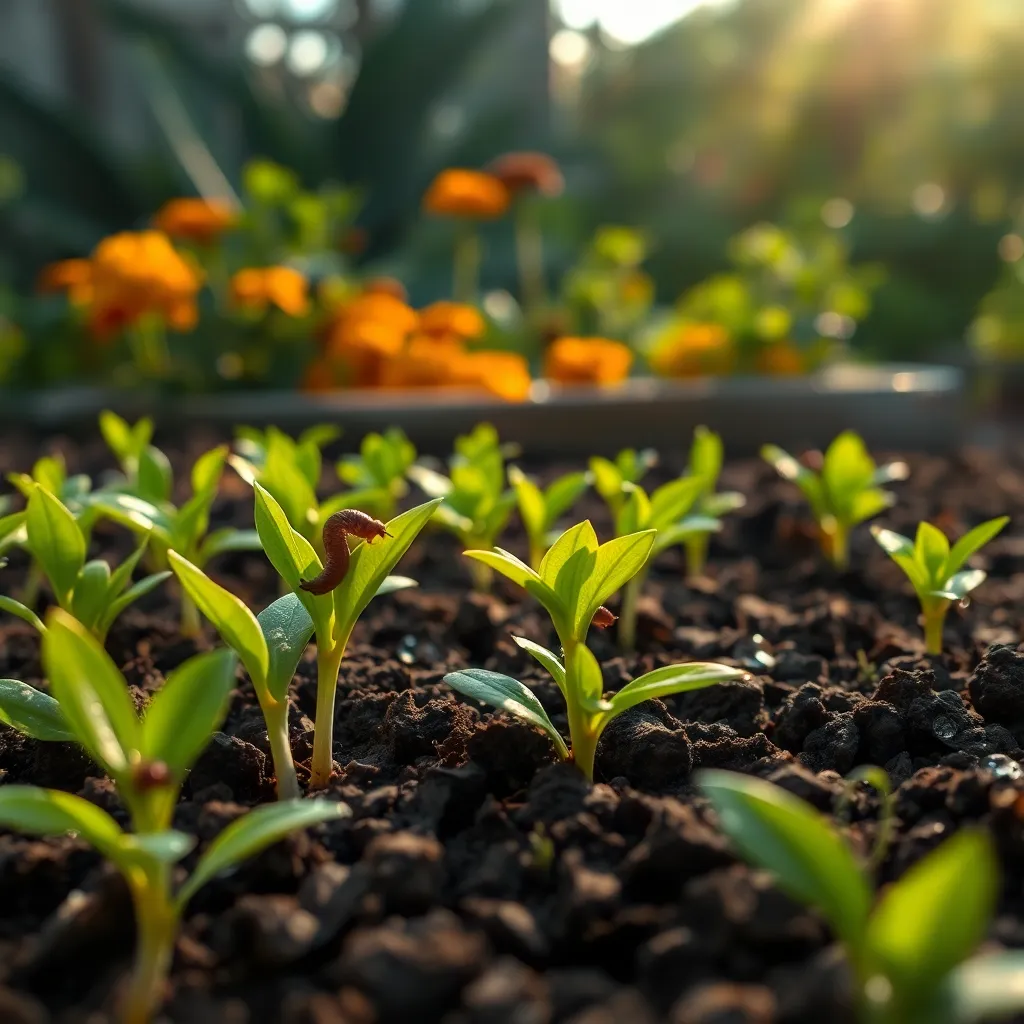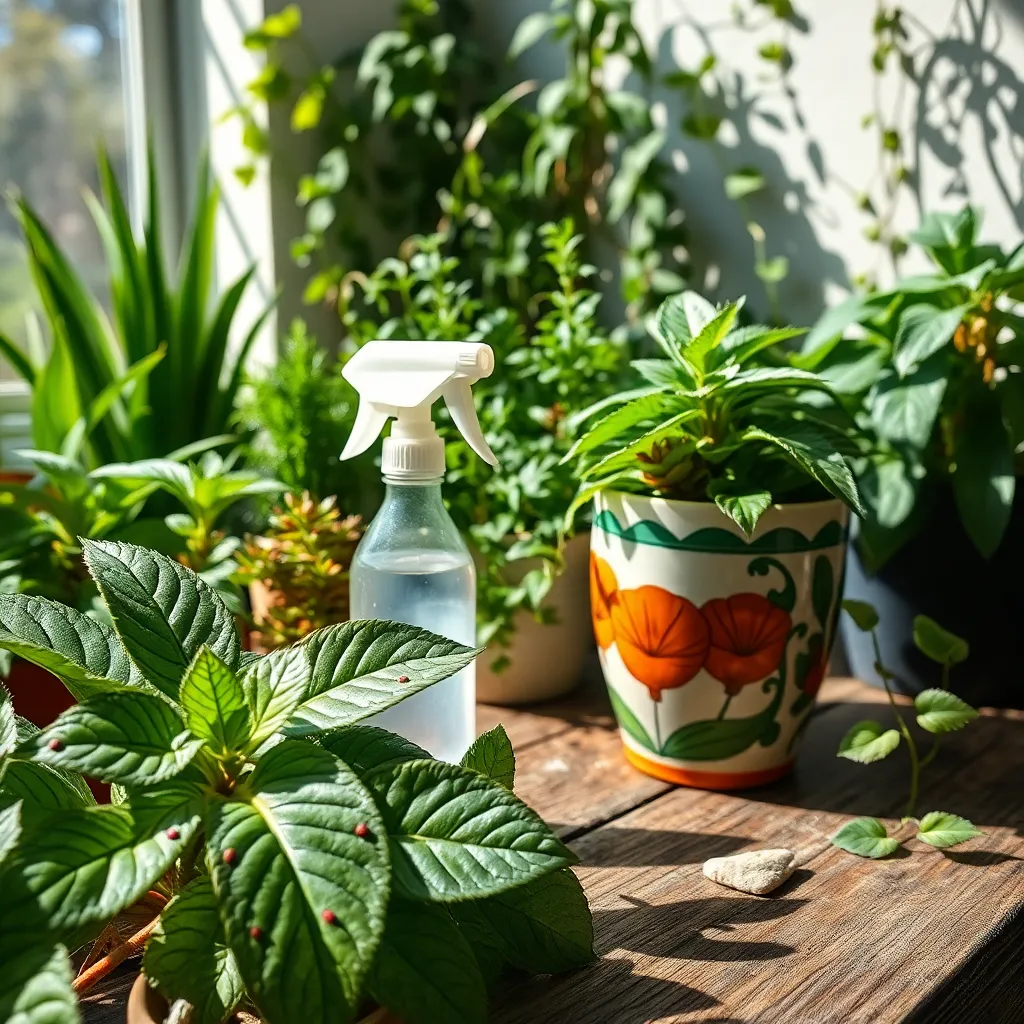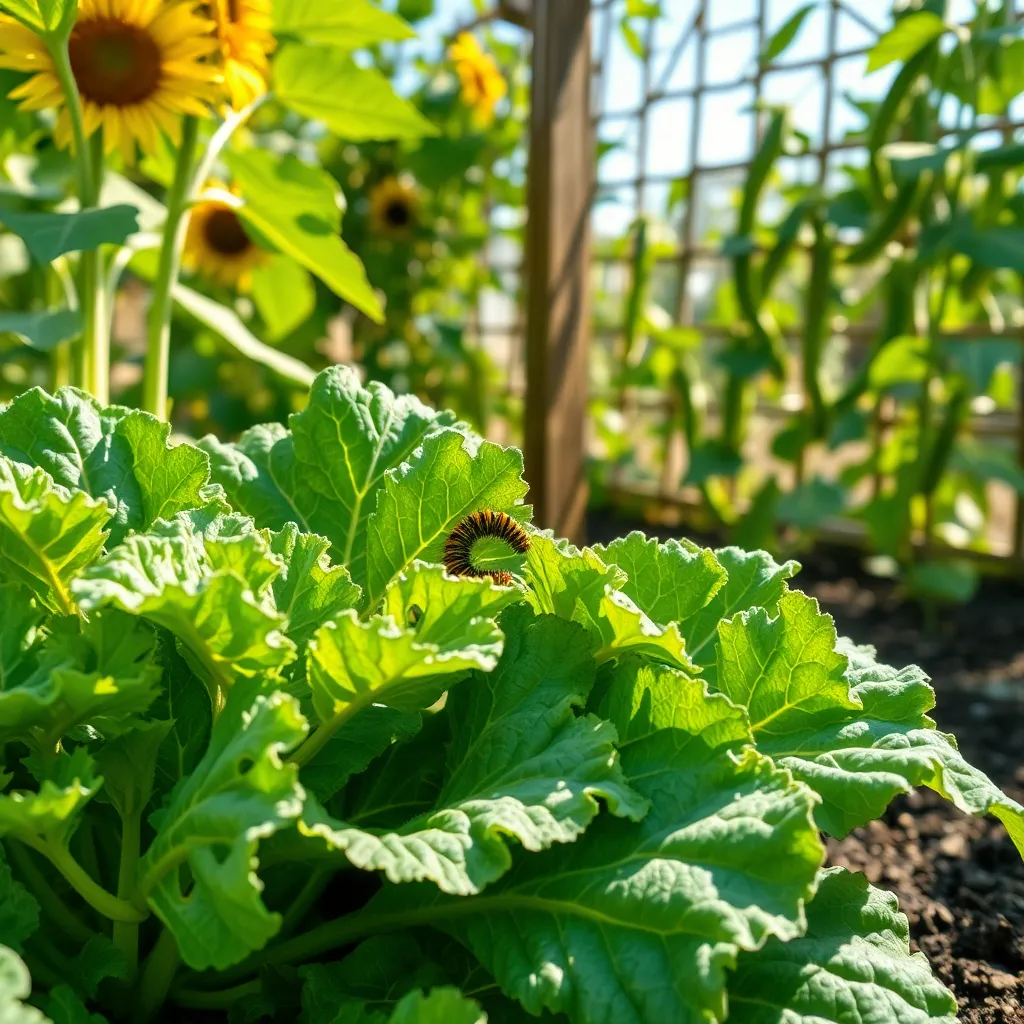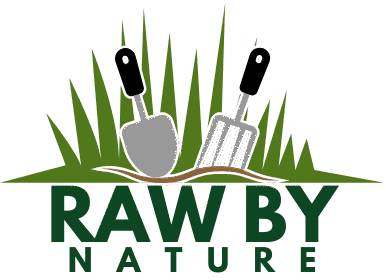Gardening is a rewarding journey, where every seed sown is a promise of lush blooms or bountiful harvests. Yet, even the most passionate gardener knows that every garden paradise faces its share of intruders—pesky pests that seem to lurk at every turn. For both the budding gardener just starting out and the seasoned green thumb, learning to repel these nuisances naturally is a game-changer. It not only protects your precious plants but also nurtures a healthy, thriving ecosystem right in your backyard.
In this article, we delve into the myriad benefits of keeping your garden pest-free using natural methods. You’ll discover how to create a harmonious garden environment that deters unwanted visitors without resorting to harsh chemicals. By embracing organic pest control, you not only safeguard your plants but also contribute to the well-being of beneficial insects and the overall health of your garden soil. Whether you’re cultivating a small herb garden or managing a sprawling vegetable patch, these natural techniques offer practical, sustainable solutions.
Our journey will guide you through a variety of strategies, from companion planting to homemade pest repellents. You’ll learn how to harness the power of nature itself, using plants that double as both garden guardians and vibrant additions to your landscape. With a little knowledge and a touch of patience, you can transform your garden into a sanctuary free from unwanted critters. Let’s embark on this path toward a greener, more resilient garden together—one that thrives in balance and harmony.
Aphids Attacking Your Vegetables

Aphids are a common problem in vegetable gardens, but they can be managed effectively without harsh chemicals. These small, soft-bodied insects often appear in clusters on the undersides of leaves, where they feed on plant sap and can cause significant damage.
If you notice aphids on your vegetables, try introducing natural predators like ladybugs, which are highly effective in controlling aphid populations. Alternatively, you can make a simple homemade spray by mixing water with a few drops of dish soap and applying it directly to the affected plants.
Ensuring your vegetables are healthy and growing under optimal conditions can also help them resist aphid attacks. This involves maintaining well-draining soil, consistent watering, and ensuring your plants receive adequate sunlight, which strengthens them against pests.
For more advanced gardeners, consider companion planting as a strategy to deter aphids. Planting garlic or marigolds near susceptible vegetables can naturally repel these pests due to their strong scent.
Slugs Destroying Tender Seedlings

Slugs can be a gardener’s worst enemy, especially when they target tender seedlings. To protect your young plants, consider creating a barrier with crushed eggshells or diatomaceous earth, which can deter slugs due to their sharp textures.
Another effective strategy involves using natural predators to keep slug populations in check. Introducing beneficial creatures like frogs, toads, or ground beetles can significantly reduce slug numbers in your garden.
For those looking to take a more hands-on approach, nighttime excursions with a flashlight can be surprisingly effective. Simply pick off any slugs you find and relocate them away from your garden, or dispose of them safely.
Advanced gardeners might consider setting up beer traps, which attract slugs due to the yeast aroma. Bury shallow containers filled with beer at soil level; slugs will crawl in and drown, providing a simple yet efficient solution.
Spider Mites on Indoor Plants

Spider mites are tiny pests that can cause significant damage to indoor plants by sucking the sap from leaves. Early detection is crucial, so regularly inspect the undersides of leaves for their telltale webbing and speckled leaf damage.
To manage a mild infestation, begin by isolating affected plants to prevent spread. Gently washing leaves with a solution of water and mild dish soap can help remove mites; make sure to rinse thoroughly to avoid soap residue.
For a natural control method, introduce beneficial insects like ladybugs or predatory mites that feed on spider mites. Increasing humidity around your plants can also deter these pests, as they thrive in dry conditions—consider using a humidifier or misting plants regularly.
Advanced gardeners may opt for neem oil as an organic solution, applying it as a foliar spray every seven days until the infestation is under control. Ensure to follow label instructions precisely to avoid harming your plants or beneficial insects.
Caterpillars Chewing Leaves

Caterpillars can be a common nuisance in gardens, notorious for chewing through plant leaves and causing significant damage. To manage these pests naturally, consider introducing beneficial insects such as ladybugs and parasitic wasps, which are known to prey on caterpillars.
Another effective strategy is to use physical barriers like floating row covers to protect young plants from caterpillar infestations. Ensure these covers are secured tightly around the plants, allowing them to grow without interference while keeping pests out.
For a more direct approach, handpicking caterpillars from plants can be quite effective, especially in small gardens. This method is best done early in the morning or late in the afternoon when caterpillars are less active.
Additionally, consider planting companion plants that naturally repel caterpillars, such as dill and lavender. These plants can be strategically placed around your garden to deter caterpillars while also enhancing the biodiversity of your garden space.
Ants Invading Fruit Trees

Ants often invade fruit trees because they are attracted to the sweet sap or fruits. One natural way to manage this is by creating a barrier using a sticky substance like Tanglefoot, which can be applied around the base of the tree.
Another effective method is to introduce beneficial insects that prey on ants. Ladybugs and certain types of beetles can reduce ant populations naturally by disrupting their habitat and food sources.
To further deter ants, consider applying diatomaceous earth around the base of the tree. This natural product is safe for plants but can damage the exoskeletons of ants, effectively reducing their numbers.
Maintaining healthy fruit trees is crucial in preventing ant infestations. Ensure your trees are well-watered, with regular deep watering to promote strong root systems, and mulch properly to conserve moisture and suppress weeds.
Conclusion: Growing Success with These Plants
As we navigate the intricate garden of relationships, understanding how to naturally repel pests—those small but impactful challenges—is essential. First, we explored the power of open communication, which acts like a protective barrier against misunderstandings. Next, we delved into the importance of setting healthy boundaries, ensuring that respect and autonomy flourish. We also highlighted the value of empathy, nurturing a deeper connection by truly understanding each other’s feelings. Trust was identified as the sturdy trellis supporting the growth of any relationship, while patience emerged as the sunlight, allowing love to mature and blossom over time.
To plant these concepts firmly in your relationship, take a moment today to initiate a heartfelt conversation with your partner about one of these elements. This small step can lead to significant growth.
Remember, relationships thrive when nurtured with care and intention. Bookmark this article now to revisit these insights whenever you need a reminder. As you implement these strategies, envision a relationship that not only withstands challenges but grows stronger with each season. Your commitment today is the seed for a flourishing tomorrow.


